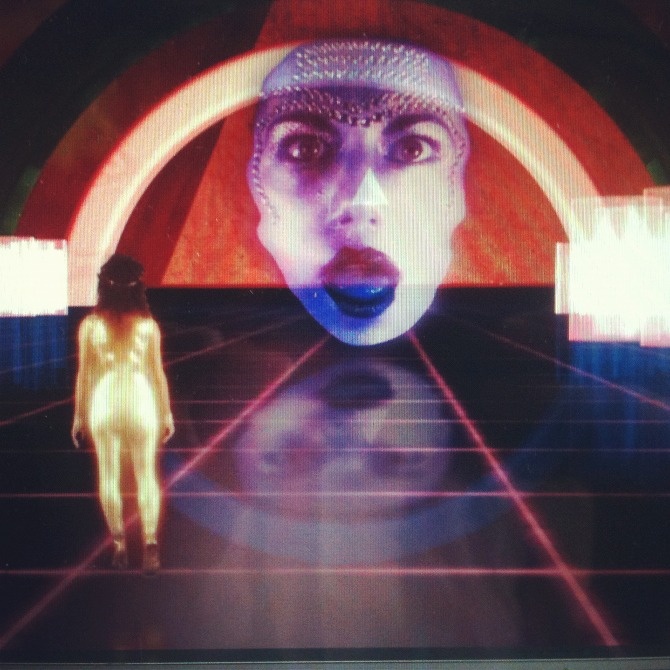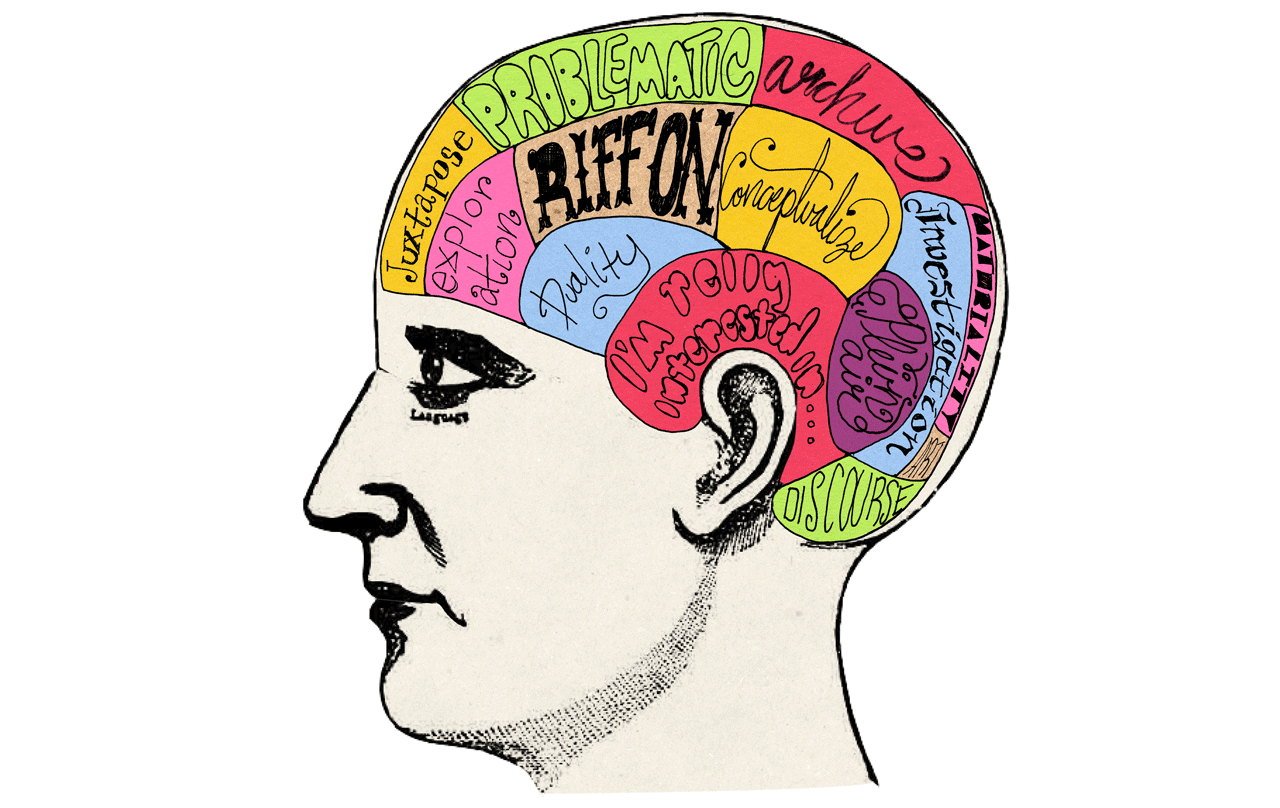
Prince Rama are in town to screen their new psych-opera Never Forever at the Chicago International Movie and Music Festival. The group is also playing at the Hideout as part of CIMMFest, this Saturday – May 3.
The sister duo of Taraka and Nimai Larson have made six albums in the last four years after joining Animal Collective‘s Paw Tracks label. They’ve recently produced a performance at the Whitney Museum and an exhibition at the Indianapolis Museum of Contemporary Art with their performative psychedelic disco aesthetic.
F Newsmagazine posed some questions about Taraka’s manifesto on music making, “The Now Age,” eternity, apocalypse, utopia, and embodying dead bands from the past that never existed (as they do on Top Ten Hits for the End of the World).

F Newsmagazine: Can you explain what you mean by the term Ghost Modern? Does it have any connection to Derrida’s idea of Hauntology?
Prince Rama: I use the term Ghost-Modernism to describe the aesthetic phase following post-modernism, in which time ceases to be linear and past, present and future become more holographically embedded in the present. The internet has a lot to do with the development of this phase because it has created an artificial sort of Digi-Eternal-Now merging the physical world with the metaphysical ghosts of bygone eras and futures not yet manifest that we as residents of the flesh dip in and out of like people possessed by ghosts. When people talk about “tumblr fashion,” they are totally talking about an instance when people “in the real-world” are haunted by the look of this phantom virtual world. So yes, I am totally flirting with Derrida, but in the end I never go home with him.
F Newsmagazine: Are there other musics besides your own that you consider “Ghost Modern”?
Prince Rama: Anytime you hear a song that sounds eerily like something else, that is ghost-modern.
F Newsmagazine: Do you differentiate channeling inspirational works of the past and become distracted by inauthentic copying? How?
Prince Rama: Channeling is very different from imitation. Imitating is all about a recapitulation of the past. Channeling is about embodying a timeless present. One is linked to the aesthetics of time, one is linked to the aesthetics of no-time. Channeling is synonymous with participating in the Eternal Now.

F Newsmagazine: How did you meet the artist Paul Lafolley? What comprised your apprenticeship with him?
Prince Rama: I met him in Boston while attending the School of the Museum of Fine Arts out there. It was this totally random work study position that I applied for on a whim, then as soon as we met in person we connected instantly as mutual freaks. To say it was an apprenticeship hardly does it justice… for me it was like a spiritual discipleship. We’d discuss levitating cities, time traveling through holograms, harnessing utopic space, and then I’d add a layer of gesso and bake him molasses cookies.
F Newsmagazine: How long did it take you to write “The Now Age“? What inspired you to produce this manifesto?
Prince Rama: It’s still writing itself… everyday I write a little more, with each limb, each step, each breath. It’s more of a living meditation than manifesto, really. This interview is part of it. If you really want to know what inspired it don’t ever read it, just stop what you’re doing and stare hard at nothing.
F Newsmagazine: In your treatise on aesthetics, I noticed that you focus a lot on the back and forth between material, song, and space. How does this manifest in your live performances sonically?
Prince Rama: For me, material is space, and space is song, and a performance is nothing more than covering yourself with the dirt and sweat of forever’s dance floor.
F Newsmagazine: Do you temporarily create an architecture of utopia? Is that common do you think?
Prince Rama: Utopia can’t be created or destroyed. There is no Architectural Digest for Utopia. Give me a bed where our bodies can fuck the big bang. That is the only temporary utopian architecture I’m interested in, and I’m constantly logged on the cosmic tinder in search of that.
F Newsmagazine: How did you discover the word Hyparctic to describe song?
Prince Rama: I saw it first used in a Paul Laffoley painting, but it came originally from a British dude named JG Bennet. For me it is the perfect word to describe this liminal space between time and eternity, everywhere and nowhere. In this space, all paradoxes are resolved in harmony, and harmony is resolved in song. “Take me down to the paradise city where the grass is green and the girls are pretty…”
F Newsmagazine: For you, what is the difference between apocalypse and utopia?

Prince Rama: There is no difference.
F Newsmagazine: When and where did you shoot Never Forever?
Prince Rama: Forever ago, in never-land.
F Newsmagazine: Do you channel the bands from Top Ten Hits of the End of the World when you perform them?
Prince Rama: Yes.

F Newsmagazine: Are there any bands that are more fun to channel? Any that cause strange feelings to emerge?
Prince Rama: I.M.M.O.R.T.A.L.I.F.E., Motel Memory, and Rage peace are probably the most fun. They all cause pretty strange feelings to emerge, though.







